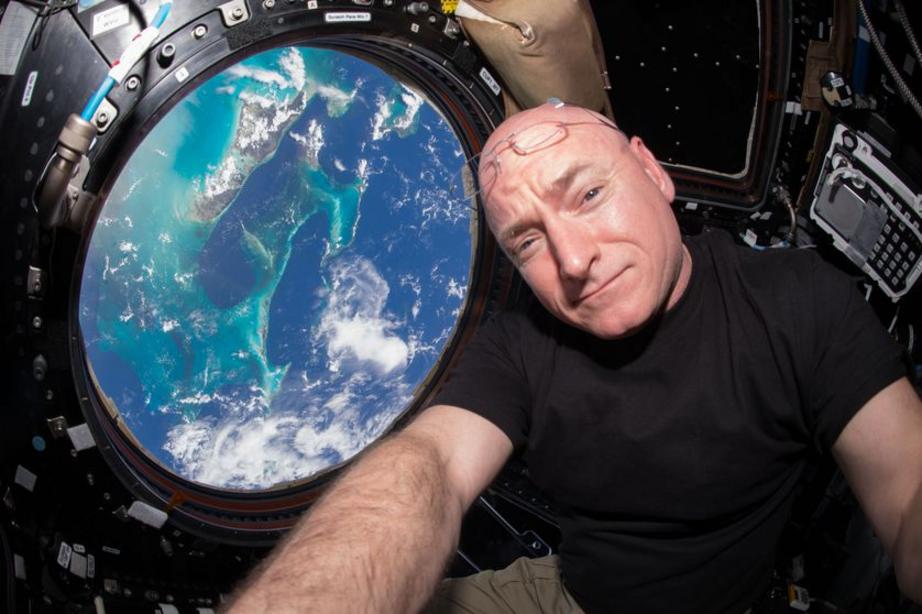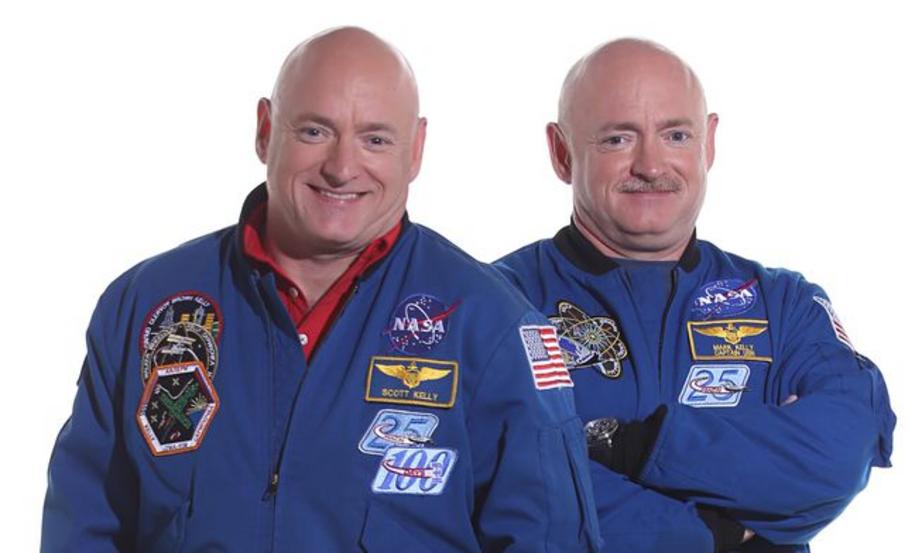Twins study: space travel changes human DNA
Studying the genetic differences between twins Scott and Mark Kelly, NASA gets some unexpected results.
NASA has released the first findings from its year-long Twins Study, and the results have some scientists scratching their heads.
The first-of-its-kind opportunity to study the genetic impact of space on the human body came about after astronaut Scott Kelly was chosen to serve aboard the International Space Station from March 2015 to March 2016. His identical twin, Mark Kelly, who is also a former NASA astronaut, remained on Earth.
During the course of NASA's year-long mission aboard the International Space Station (ISS), researchers from 12 universities analyzed biological samples from both brothers to gauge the genetic shifts that might be taking place.
"We're going to need to understand this really well before we decide to send people to Mars on an extended mission," Mark Kelly told NPR last year.
Time in space affects telomere length
 Scott Kelly's year in space included a record-breaking 5,440 orbits around the Earth.
Scott Kelly's year in space included a record-breaking 5,440 orbits around the Earth.
The most surprising part of the study so far has to do with telomeres. These are essentially caps at the end of DNA that protect our chromosomes. They are thought to be tied to aging, since the length of our telomeres both decrease as we get older and are impacted by such factors as stress, smoking, lack of exercise and a poor diet.
Before the study, scientists speculated that the stress of space living would cause Scott's telomeres to shrink in comparison to his brother's. Instead, much to their surprise, the telomeres in Scott's white blood cells actually grew.
"That is exactly the opposite of what we thought," Susan Bailey, a radiation biologist at Colorado State University who is working with NASA to study the effect of space on telomeres, told Nature.
Once Scott returned to Earth, his telomeres quickly returned to their pre-mission levels. NASA speculates that the increase may have something to do with the low-calorie diet and strict exercise regimen Scott adhered to while on-board the ISS.
And it changes your gut, too
Other findings of note included a shift in the ratio of two dominant species of gut bacteria in Scott Kelly. While in space, one species dominated over the other. Back on the ground, however, the ratio returned to normal. Researchers performing genome sequencing on the twins also found more than 200,000 RNA molecules that were expressed differently between the twins. Current theories as to why this is happening range from the effects of microgravity to the simple act of eating freeze-dried food for 340 consecutive days.
And then there's the mystery of DNA methylation, a process that governs chemical modifications to DNA. While in space, Scott's methylation levels decreased. Over the same time on Earth, Mark's levels did the complete opposite. According to NASA, such results may indicate "genes that are more sensitive to a changing environment whether on Earth or in space."
NASA will release further results on the Twins Study, including physiological and psychological findings, in the coming months.

